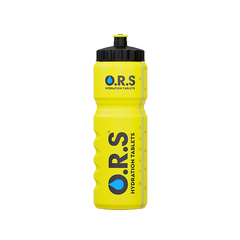Top Dehydration Tips For Avid Runners

As a way to keep fit and get more exercise, running will always be one of the more popular pursuits out there, no doubt in large part because it’s easily accessible, can be done anywhere and you don’t need much equipment to get going… and, of course, it makes you feel amazing after you’ve completed your circuit, with runner’s high a very real phenomenon!
However, although it’s relatively simple to pull on your running shoes and head out to pound the pavement, if you are going to take running seriously as a form of exercise you do need to make sure that you do a bit of reading and research first so you know how to stay safe on the road.
First and foremost, you need to think about how your body will respond to the intensity of running. Not only can it put a lot of stress and strain on your joints (which is why form is absolutely key and not something to be considered lightly), but dehydration is also a top concern because you’re expending so much energy, particularly if you’re running during the sweltering summer months - which are now fast on the approach!
Interestingly, dehydration can have a big impact on your performance as a runner, so if you do want to level up and really make serious running progress, focusing on dehydration and what you can do to tackle the effects could prove particularly beneficial.
When you start to sweat as you run, your body starts to dehydrate and your blood volume decreases, which means that the amount of blood being pumped by your heart decreases over time, so less oxygen-rich blood will go towards feeding your hard-working muscles.
This, in turn, means that your aerobic energy production rate starts to fall, so you find yourself needing to slow your pace down.
What this ultimately all means is that you need to make sure you keep yourself well hydrated throughout the day, although the amount you need to drink will depend on heat and humidity, how hard you train and the size of your body.
Drinking around two litres a day should keep you in tip-top hydration shape, but don’t forget that you’ll need to replace all the fluid you lose through exercise, as well.
Another option if you’re looking to boost your hydration and your running performance is the use of electrolyte tabs.
Electrolytes are minerals that we naturally have in our body (mainly magnesium, calcium, potassium and sodium) and they have critical roles to play in maintaining our blood pressure, fluid balance, muscle contraction and hormone regulation. You can find yourself in an imbalance when you lose fluids… such as when you sweat while running!
These supplements can help prevent dehydration and make sure that you have all the fuel you need to run for longer and longer… although it’s important that you don’t solely rely on these tablets for hydration as you could find yourself in an electrolyte imbalance - so make sure that you’re drinking enough water and following the recommended dosages.

